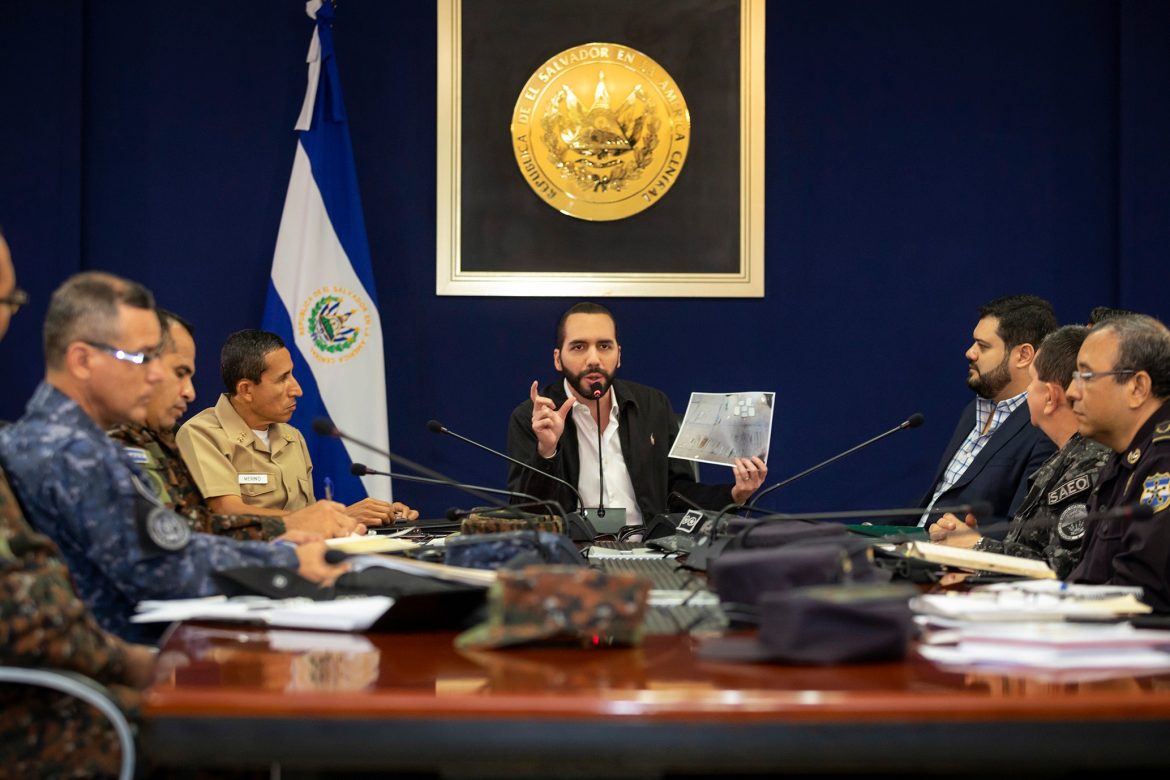The 11th Hour: Bukele’s Fight for Candidacy
Nayib Bukele’s path to the presidency of El Salvador was fraught with challenges and opposition at every turn. Bukele, who previously served as the mayor of both Nuevo Cuscatlán and San Salvador, faced significant resistance from established political parties as he sought the presidency. His opponents used every legal and bureaucratic tool at their disposal to hinder his candidacy. Bukele recalls how his party was cancelled just as he was preparing to file his candidacy. In a dramatic turn of events, Bukele managed to secure the registration of another party at 11:00 PM on the last possible day, enabling him to submit his candidacy just in time. This narrow escape, as Bukele often describes it, was a testament to his perseverance and strategic acumen.
Early Years in Office: Battling the Opposition
Upon assuming office, Bukele found himself at odds with a legislative assembly and judiciary controlled by his political adversaries. Without a majority in the legislative branch, Bukele’s administration faced constant roadblocks. Every veto he issued was overridden, and his initiatives were frequently deemed unconstitutional by the Supreme Court. The legislative and judicial branches, dominated by entrenched political factions, effectively paralyzed his efforts to enact meaningful change.
Bukele spoke candidly about the challenges of this period, highlighting how the opposition, influenced by gang interests, stymied any forward movement. The gangs, which held significant power within the political and social fabric of El Salvador, posed a formidable challenge. Bukele’s administration was unable to implement crucial reforms, as his adversaries prioritized maintaining the status quo over the country’s progress.
Overcoming the Odds: A Turning Point
Despite these challenges, Bukele’s administration began to turn the tide. One of the critical turning points was his strategy to combat gang violence. El Salvador had been the murder capital of the world, but under Bukele’s leadership, the country saw a dramatic reduction in crime rates. Bukele’s government doubled the size of the army, invested in police forces, and launched comprehensive plans to dismantle gang networks. These efforts quickly transformed El Salvador into one of the safest countries in the Western Hemisphere.
Bukele attributes much of this success to a mix of strategic planning and, as he puts it, a miracle. When gangs retaliated by killing 87 people in three days, Bukele and his team, facing an almost impossible task, turned to prayer for guidance and wisdom. This spiritual approach, coupled with decisive action, helped pacify the country and restore a sense of safety.
Related:
- Origins of MS-13 Gang is California under President Bill Clinton according to President Nayib Bukele
- Turning El Salvador Around: A Dialogue Between President Nayib Bukele and Tucker Carlson | Lessons for America
- How did God, Faith, and Prayer play a key role in taking El Salvador from the mast dangerous nation in the world, to the most peaceful nation in the world according to President Nayib Bukele
- Nayib Bukele: A Story of Perseverance, Legal Battles, and Triumph Over Opposition
- America will come to an end as a democracy “if”, President Nayib Bukele’s alludes to as he shares Warnings to America and or Democracies
- President Donald J. Trump’s Call with President Nayib Bukele of El Salvador, January 24, 2025
Achieving Majority: The Legislative Breakthrough
In the 2021 legislative elections, Bukele’s party secured a supermajority, an outcome many believed to be impossible given the system’s design. This supermajority allowed Bukele to implement significant changes, including the replacement of Supreme Court justices and the Attorney General, who had previously obstructed his policies. This legislative control enabled Bukele to push through reforms and consolidate his efforts to rebuild the nation.
Moving Forward: Economic Plans and Future Aspirations
With the immediate threat of gang violence curtailed, Bukele shifted focus to economic development. His administration’s next major goal is to improve the economy, seeking God’s wisdom as the cornerstone of his economic plan. Bukele’s approach emphasizes the need for spiritual and moral guidance in decision-making processes, a perspective that has resonated deeply with the Salvadoran populace.
Conclusion
Nayib Bukele’s journey from a beleaguered candidate to a transformative president is a narrative of resilience, strategic ingenuity, and faith. Despite facing overwhelming opposition and systemic challenges, Bukele’s leadership has brought about significant changes in El Salvador. His administration’s success in reducing crime and securing legislative power paves the way for continued progress, promising a brighter future for the nation. Bukele’s story serves as a powerful example of how determination and adherence to principles can overcome even the most formidable obstacles.




